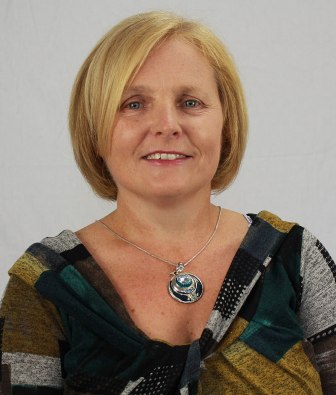LORD MAYOR OF DUBLIN
 Born and raised in Dublin, Cllr Críona Ní Dhálaigh has served on Dublin City Council since 2006, and was appointed as Lord Mayor of Dublin this past June. Recently she answered our Seven Celtic Questions.
Born and raised in Dublin, Cllr Críona Ní Dhálaigh has served on Dublin City Council since 2006, and was appointed as Lord Mayor of Dublin this past June. Recently she answered our Seven Celtic Questions.
What are your Celtic roots?
My Irish ancestors were bards, poets and public representatives.
Why are those roots important to you?
I am following a noble Gaelic tradition. As first citizen of Dublin I am entrusted with carrying that tradition forward, and my heritage and language are important things to highlight during my tenure.
What does it mean to you today to be of Celtic heritage?
Our Irish language and culture are what sets us apart from other Anglophone countries. The great music, song, art, and history are an integral part of being an Irish person. Many of these poets and dreamers were central to the revolutionary phase in Irish history which we are commemorating at present. As an Irish speaker I use my native tongue on a regular basis. It is a part of who I am and an expression of my pride in being Irish. As first citizen, I have a role in fostering a greater use and understanding of our first language amongst our citizens.
How are you involved with the Celtic community?
I am involved with Irish language organizations. I am also involved in one of the oldest Feiseanna in Dublin – Feis Átha Cliath – which promotes Irish culture through music, song, dance and Irish language. I also attend ceilídhs as often as I can and love both rince ceilídh and set dancing.
Why is it important to keep Celtic culture alive?
Our culture is constantly evolving and developing. We have seen a great increase in the use of Irish in particular in urban areas. We have a fantastic national TV service called TG4 and a radio station called Raidió na Gaeltachta which serves the whole country. There are websites and publications, community organizations, sporting and heritage groups who all do wonderful work in promoting our Celtic heritage. We need to be conscious though that our Gaeltacht areas are under extreme pressure and the state needs to give much more practical support if they are to remain as vibrant areas where our language and heritage are alive and available for all to enjoy.
Is enough being done to preserve and promote Celtic culture generally?
There has been incredible work done by the community and voluntary sector for many years. We have a wonderful annual celebration of Irish language and culture called An tOireachtas. Our music and dance are well served nationally and internationally by Comhaltas Ceolteoirí Éireann. Our sports are fostered by the GAA. But the phenomenon of homogenization and globalization of culture puts pressure on all culture and we therefore must make sure we support our indigenous heritage. We also need to keep our culture contemporary, embracing new forms of communication and media, new artistic expressions whilst respecting who we are and where we came from. Government and the state have a key role in this process.
What can we be doing better?
It is important the government departments, local authorities, state sponsored bodies and other public organizations make a bigger effort to support our native language and culture. The Welsh are leading by example in this regard. The language there is given equal status in signage, translations, legislation and support services. We could certainly try and emulate their success. We also need to up our game on the implementation of the 20 Year Strategy for the Irish Language. This would have a long lasting impact for all our citizens. As a Sinn Fein representative I am also conscious of the need to have an All Ireland approach to promoting our heritage and culture, and the GAA and Fleadh Ceaoil na hÉireann are great examples of how this can be developed.
www.sinnfein.ie/criona-ni-dhalaigh



















Leave a Comment